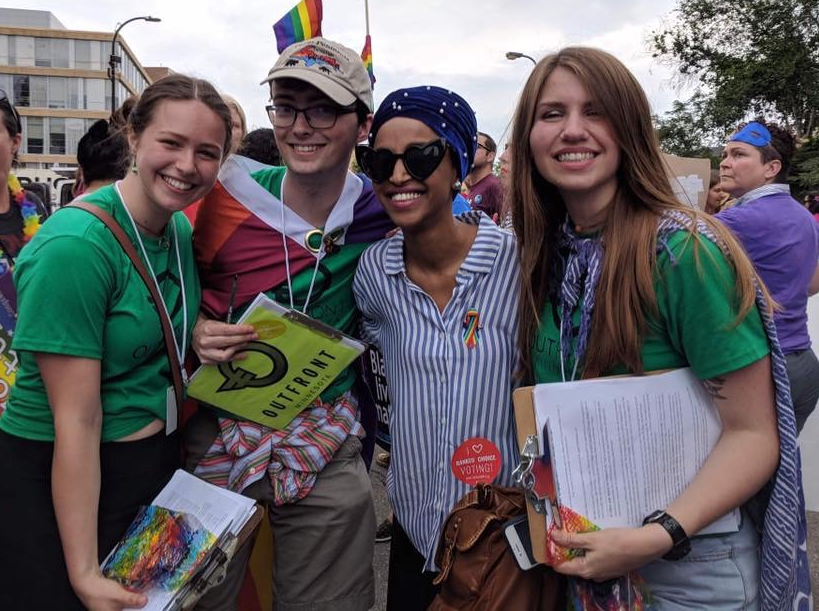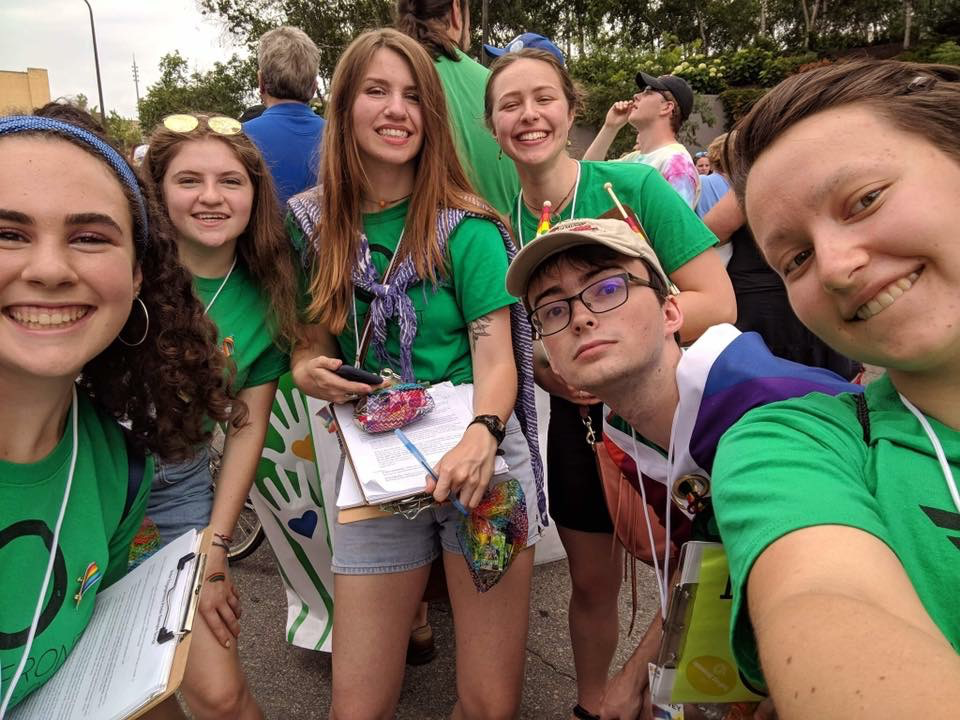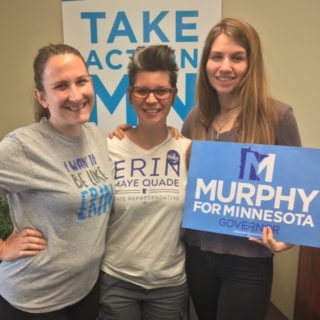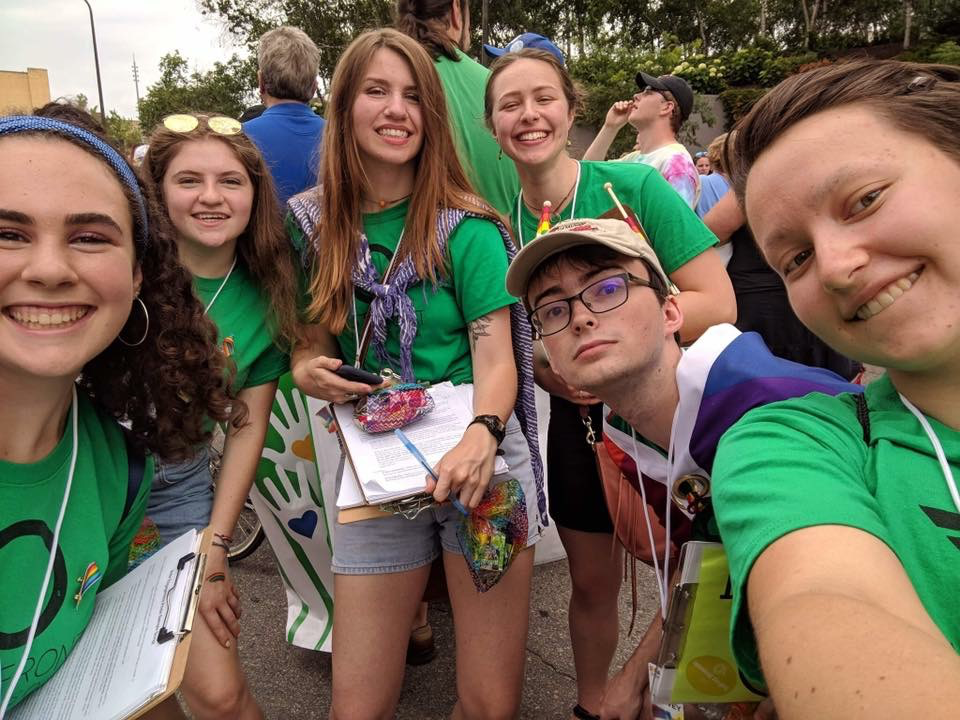By Karinna Gerhart. When I was growing up, politics was never very present in my life. My parents voted, but no one volunteered. No one I knew worked in politics, or even talked much about the news. I learned politics was a passive process for most folks; it simply didn’t look that easy to get involved.
I’ve always felt injustice like a gut punch. In a middle school hallway, I held one of my best friends close after a boy thought it would be funny to order her to bring him a sandwich. She cried, because it brought up memories of her mom’s abuse at the hands of misogynistic men. I cried, because it made me angry, and I couldn’t do anything about it.
Part of the reason I didn’t get actively political until college, maybe the only reason, was that I never saw an example of what that looked like. I didn’t believe I could have an impact on my world because I was a teenager, and teenagers are so often seen as passive, aimless, uncaring. So I swallowed that narrative, and I stayed home. I stayed home instead of jumping into campaigns and protests and door knocking until my fingers hurt. I carried an anger with me that bubbled up at every evidence of our world’s injustice, but the environment I was living in implicitly urged me to wait, since taking action was something adults did, and not something I could not do effectively.

When I got to college in the fall of 2016, I was still young, still unsure of my own power, but something crucial changed: I made friends who understood that their age did not hinder their potential to actively combat injustice, but actually strengthened it.
For the first time, I saw real examples of young people who weren’t daunted by the scale of the changes that needed to happen. What’s more, as I made my first steps into the world of political engagement, I had a strong support network who lifted me up, gave me resources, and made a grueling process fun.
Some of my best memories from that fall come from spontaneously organized phone banks in late October, hosted in a cramped dorm room with provisions of candy. My friends would wander in and out, some coming to socialize and immediately pulling out their cell phone to help when they saw the rest of us working through a database. We were together, we were doing what we could, but most of all, we were doing something.
That election didn’t go well for us.
But as my friends and I talked through the future together, I didn’t feel like giving up. It felt like it was more important than ever to continue taking action. I was newly armed with a community to support my efforts, and I had examples to follow, since in every corner of my college, young people were leading effectively.
I’ve spent this summer having conversations with other young people about why voting matters. In these conversations, I keep hearing my own teenage thoughts directed back at me: how can a single vote make a difference? How can I, as an individual, make any kind of change, when more powerful people have money and privilege and know how to work the system?
My answer is community. When you vote, you do not vote alone. You vote with every other person who shares your values, your concerns, your interests. The key is doing your part to organize this group, and ensure everyone is able to make their voice heard at the ballot box.

The greedy and powerful few benefit from narratives that keep young voters out of politics through cynicism and stories that discount our participation.
The best kept secret in politics is that our electoral map would be bright blue if everyone under 35 was a regular voter. The CIRCLE center at Tufts University measures young people’s ability to swing elections with the Youth Electoral Significance Index (YESI). They’ve ranked Minnesota second in a list of states where youth voters are most likely to impact the outcome of the 2018 midterms. Most folks I’ve talked to didn’t realize the amount of power they’re holding going into the fall.
We’re already seeing the impact of young voters in states like New York, where Alexandria Ocasio-Cortez, a 28 year old working class woman of color, beat a wealthy, powerful incumbent. Checkout her campaign video here.
Young people who can’t vote yet, like many of the Parkland students on the #RoadtoChange are making a powerful difference in our country. So, if you’re feeling helpless in the face of every new and terrible headline, find your people. Find your community, and act with them. You’ll be stronger, but most of all, you’ll feel stronger too.

TakeAction Minnesota is hosting Youth In Power: Storm the Polls on July 10th. Join us to learn how to bring our friends to the table as we step into an evolving political world. Expect good conversation and good tools for engaging people you know. Plus, we’ll give you dinner. All are welcome. No experience necessary.
This is OUR time to take action. Register now.
I can’t wait to meet you there.
Karinna Gerhardt
Intern, TakeAction Minnesota
#TeamErin #PoliticsofJoy

